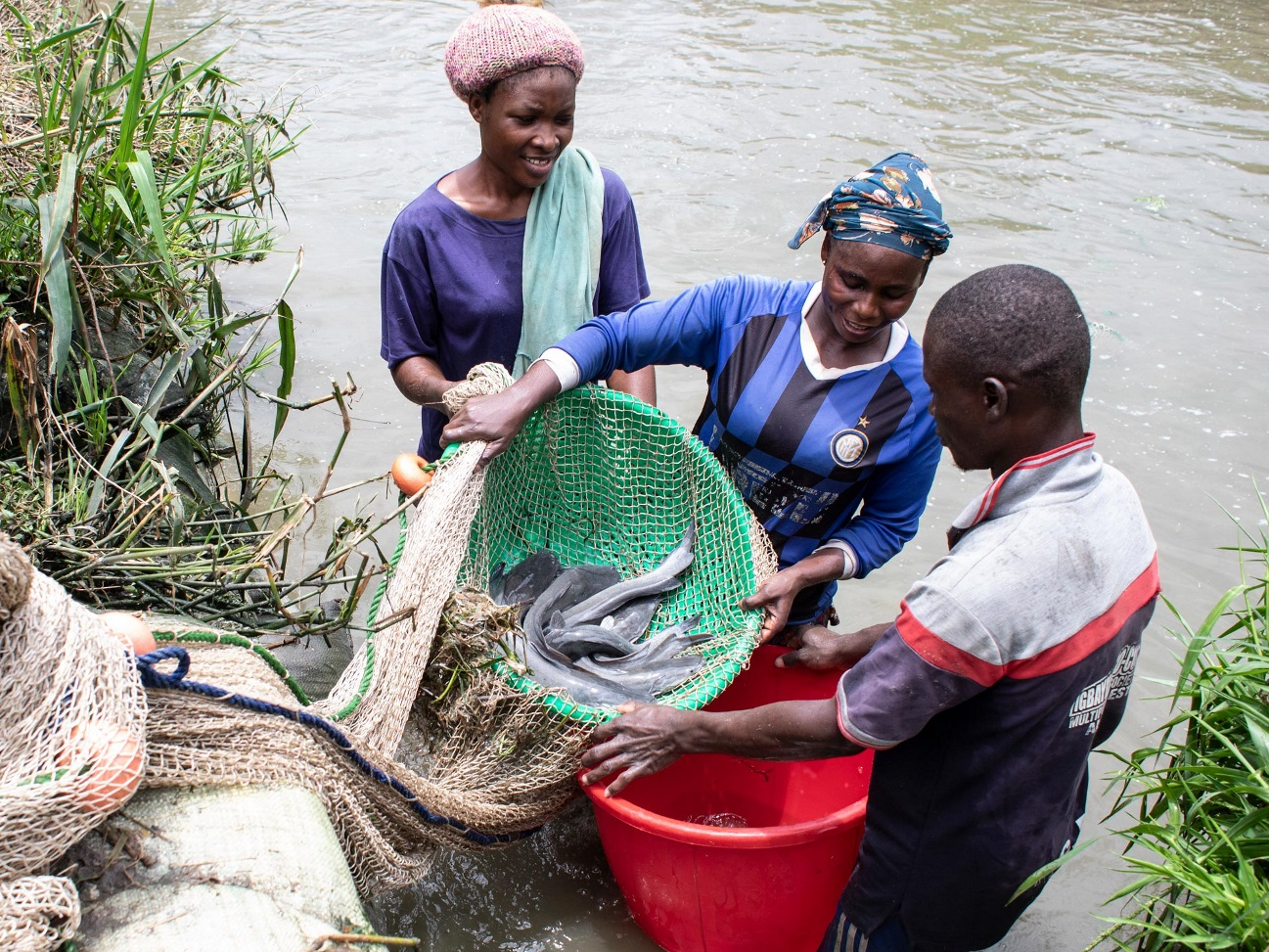Ikorodu, a community in downtown Lagos, has long been popular for its surplus farm products and healthy fish varieties. But in recent years, unpredictable rainfall, poor access to quality inputs and limited technical knowledge have dimmed that glory, threatening livelihoods and local food security.
That is why the recent one-day forum organised by the Lagos State Agricultural Input Supply Authority (LAISA) brought hope and optimism. Over 500 farmers and fishermen received training by the state government on sustainable solutions.
The event—themed “Harvesting success: Innovative solutions for Lagos farmers”—marked a turning point in how the government supports agricultural producers. It was a dialogue, a new way of creating policies with farmers that reflect the realities of Lagos’s diverse agricultural landscape.
Olufolake Oluyemi, the general manager of LAISA, highlighted the intentions of this change when she noted that the authority was no longer assuming what farmers needed. Instead, it sought to listen, learn and innovate alongside them.
This collaborative form of agricultural governance is a part of a deeper and more advanced Lagos State agricultural strategy, whereby empowerment goes hand-in-hand with interventions.
For Ikorodu farmers, it meant going beyond the old approach of doing things and embracing a path of innovation, such as enhanced availability of certified seed, the adoption of precision agricultural techniques, or better fish breeding techniques.
What is more important, however, is that it demonstrated how such government agencies like LAISA are evolving from suppliers of input to long-term agricultural resilience support providers.
What sets this programme apart is the infrastructure it aims to strengthen. For years, Lagos has been developing a more integrated and resilient agricultural network connecting farmers with extension officers, providing online forums for market access, and input subsidies to curtail the effects of inflation.
Under the Lagos Agripreneurship Programme, hundreds of youths have been trained in aquaculture, poultry and crop production.
The Eko Farmers’ Market initiative has also brought producers closer to the consumer, eliminating middlemen and minimising wastage.
Together, they demonstrate that food security is more than just a matter of large-scale production; it’s about creating an ecosystem powered by homegrown innovation and community effort towards sustainability.
In Ikorodu, the engagement with the fishermen was another leap towards this vision. As coastal erosion and overfishing erode marine livelihoods, the effort at sustainable aquaculture came at the right time.
Through the provision of improved fish feed, hatchery methods and water-quality management training, LAISA is enabling fishermen to cope with evolving environmental realities.
The incorporation of women and youth in such forums also highlights an important aspect of equity. For many participants, the event was the first time their voices were formally included in shaping agricultural policies that directly affect them.
Beyond Lagos’ reforms
Initiatives like LAISA’s engagement in Ikorodu are not isolated. Grassroots communities as well as private groups are getting involved too.
The Cocoa Farmers Association of Nigeria is now pooling resources together to procure seeds and fertiliser in large quantities, reducing expenses for its members.
In a similar vein, agricultural tech startups are connecting smallholders with buyers directly via mobile apps, while organisations such as Food for All Initiative are training farmers on climate-smart practices in response to varying weather.
Collectively, the partnerships demonstrate how combining innovation and community holds for food security in Lagos.
As Ikorodu’s fishers and farmers head back out onto their waters and lands with newfound knowledge and skills, the impact of this training is sure to echo throughout the wider agricultural community, boosting output, inspiring cooperation, and bringing the state closer to the ultimate goal of food security.
Summary not available at this time.






